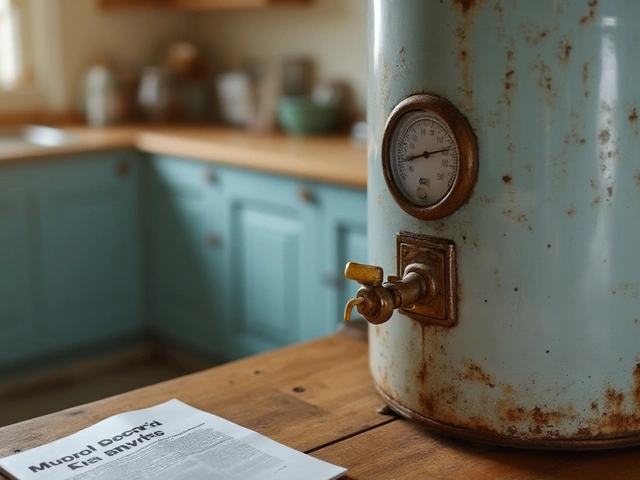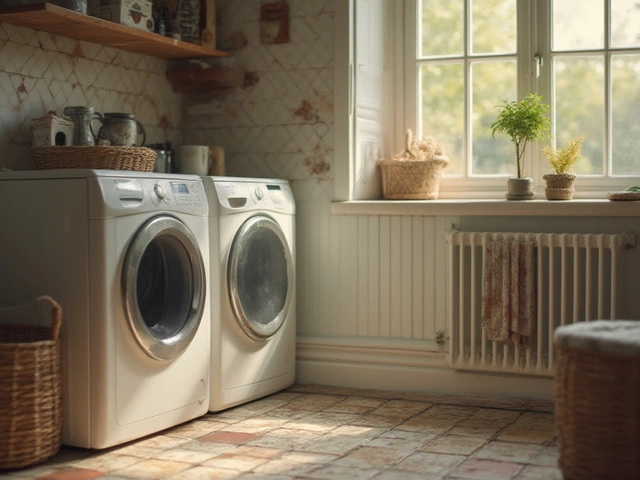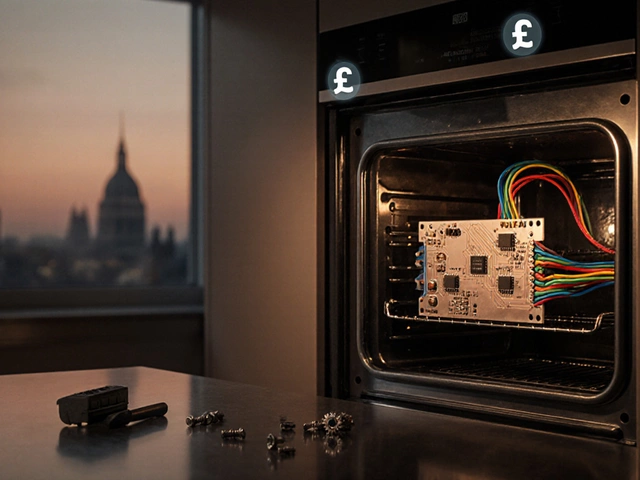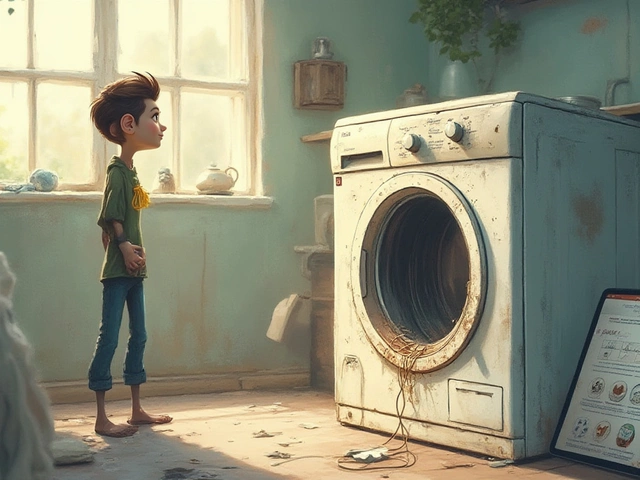If your dishwasher stopped cleaning or started leaking, you don’t have to panic or rush to a repair shop. Most everyday hiccups have an easy fix you can handle in under an hour. Let’s walk through the most common problems and what you need to check before you call a professional.
Dishwasher won’t turn on. First, make sure the unit is plugged in and the outlet works – test it with a lamp or a voltage tester. Check the door latch; most models won’t start if the door isn’t fully closed. If the latch looks fine, locate the thermal fuse on the control panel and test it with a multimeter. A blown fuse is cheap to replace and usually solves the power issue.
Not draining. A blocked drain hose or clogged pump is the usual culprit. Remove the lower rack, pull out the hose, and look for kinks or food debris. If the hose is clear, inspect the pump impeller for obstructions. You can usually reach the pump by unscrewing the front panel; a quick hand‑remove of any bits of glass or food will get water flowing again.
dishes still dirty. Start by cleaning the spray arms. Detach them (most twist off) and rinse under running water. Use a toothpick to clear any spray holes. Next, check the filter at the bottom; a greasy buildup reduces water flow. Scrape it out and soak in warm soapy water. Finally, run a cleaning cycle with a cup of white vinegar placed on the top rack to dissolve mineral build‑up.
Leaking water. Leaks often come from a cracked door seal or a loose hose connection. Examine the rubber gasket around the door – if it’s torn or brittle, replace it; it’s an inexpensive DIY job. Tighten any hose clamps you find under the unit. If water pools at the front, the drain pump may be cracked and need swapping.
Regular maintenance can prevent most of these issues. Run a hot water rinse with a dishwasher cleaner once a month, wipe the door seal after each use, and keep the filter clean. Also, avoid over‑loading – it stresses the pump and spray arms.
If you’ve checked power, drainage, and seals but the dishwasher still won’t run, the problem could be electrical – a faulty control board or motor. These components require specialist tools and safety precautions, so it’s best to let a qualified technician handle them. Similarly, if you notice strange noises like grinding or buzzing after trying the above steps, the motor bearings may be worn out and need professional replacement.
In short, most dishwasher hiccups are quick fixes you can tackle with a few tools and a little patience. Start with the basics, follow the steps above, and you’ll often save time and money. When the issue goes beyond simple parts or involves electrical work, don’t hesitate to call a trusted local repair service. Your dishwasher will be back to sparkling dishes in no time.

Curious if you can fix your dishwasher without calling a pro? This article breaks down the most common dishwasher problems and explains which repairs you can actually do yourself. We’ll cover how complicated these appliances really are, how to figure out what’s wrong, the tools you’ll need, and which jobs might leave you better off calling an expert. Get practical tips, interesting facts, and a clear picture of what you’re actually signing up for before grabbing that toolbox.

Ready to buy a new dishwasher? Check this guide for 2025's most unreliable dishwasher brands, stories you won't believe, and tested buying tips no one else will give you.

Determining when your hot water heater needs replacement isn't always straightforward. This guide explores key signs such as irregular water temperatures, strange noises, and age that might indicate it's time to get a new unit. Understanding these signs not only ensures a reliable hot water supply but also prevents potential damage and higher energy bills. Additionally, we discuss some tips for maintenance to prolong the life of your current system.

Is your washing machine considered old? Learn the real lifespan, signs it's aging, and pro tips to keep it running longer. Get real facts and advice from an expert.

Learn the typical UK price for an oven control board, factors that affect cost, DIY steps, and when to call a professional in 2025.

Find out when repairing your dryer isn’t the smart move. Learn real signs, safety warnings, and how to choose between fixing and just getting a new one.